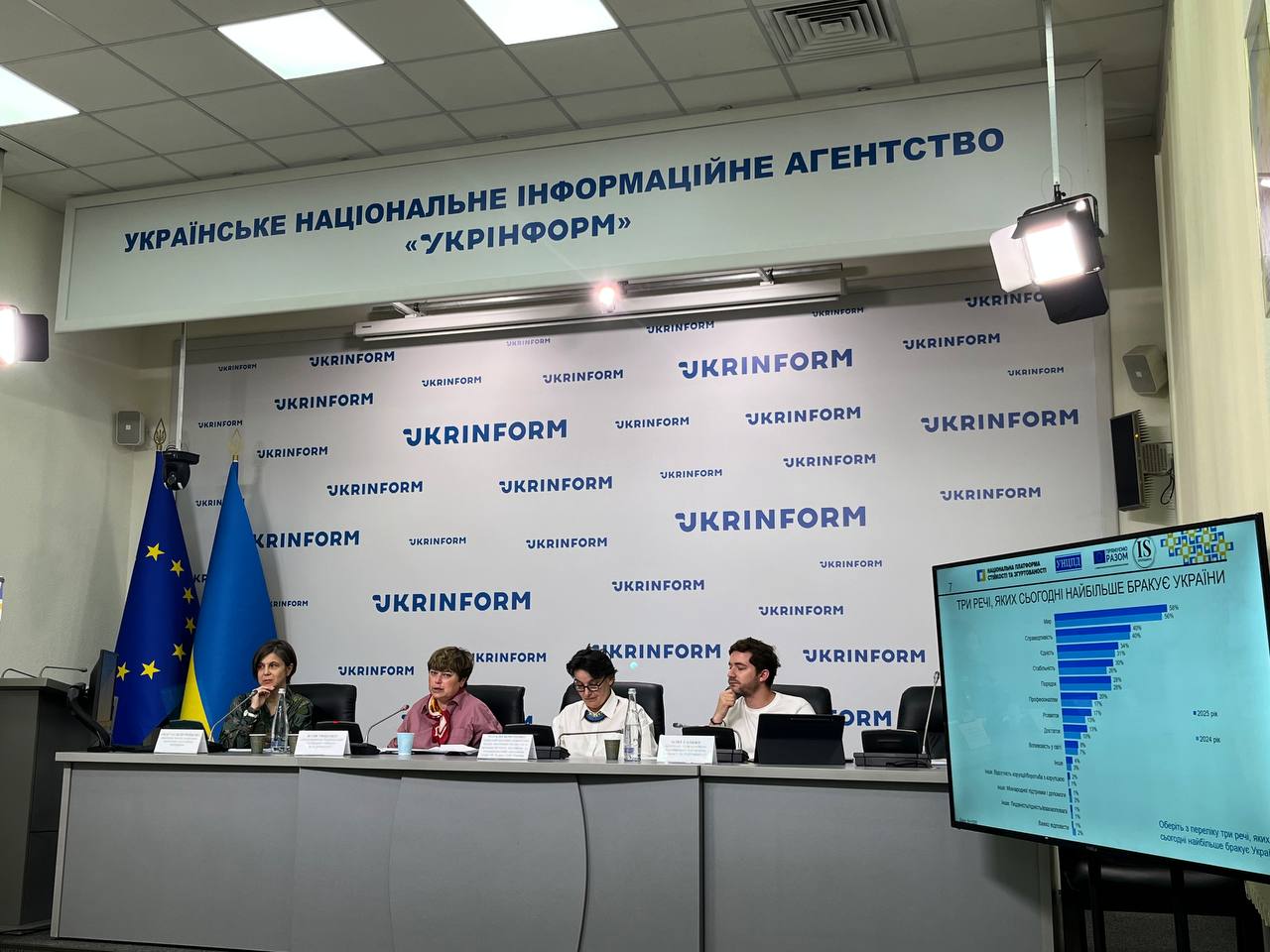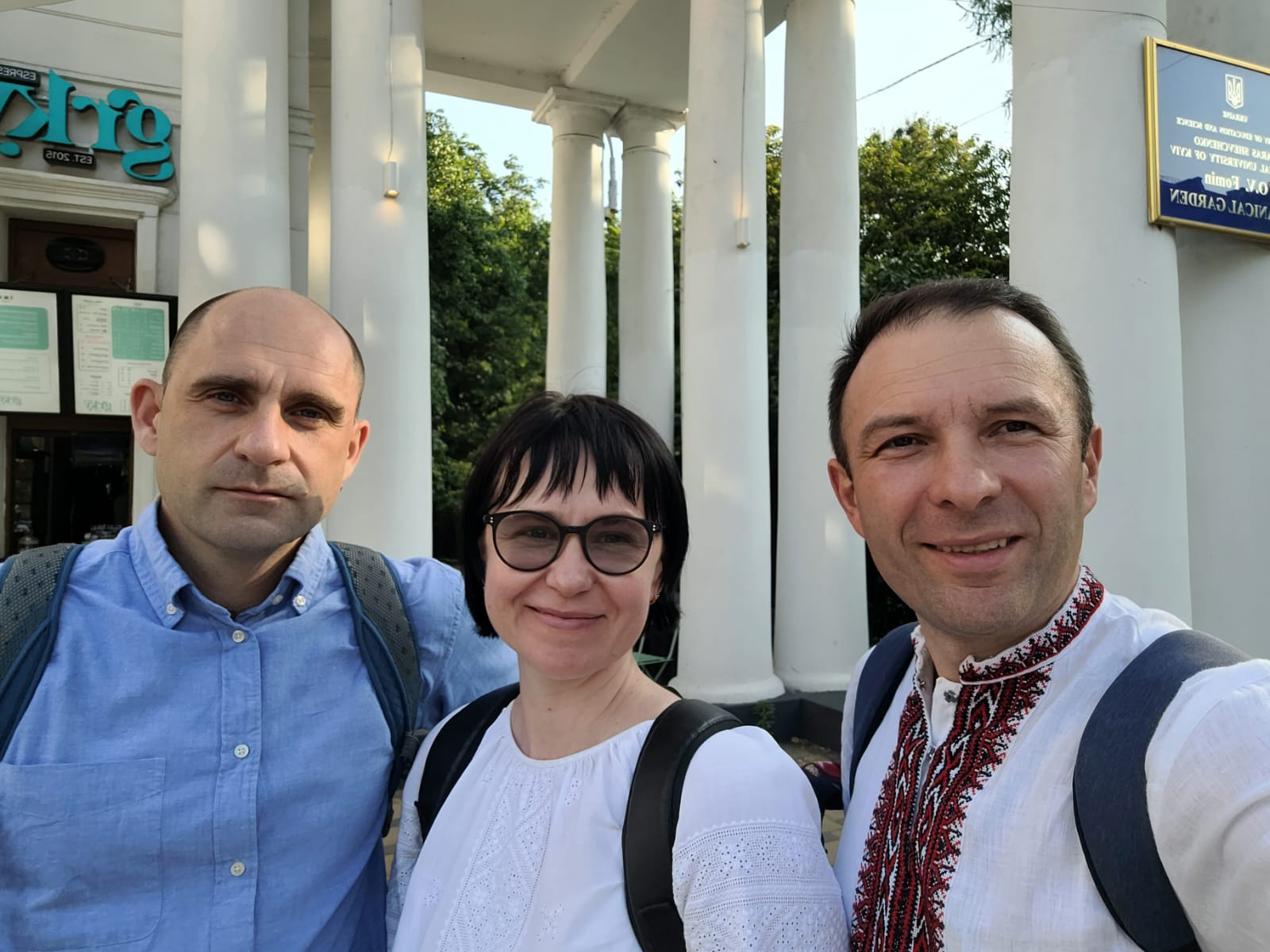As summer picks up speed, the team at the Ukrainian Center for Independent Political Research keeps working on systemic changes in legislation, community support, and developing mechanisms for participatory democracy.
In May and June, we launched new projects, presented analytical findings, and advocated for significant changes to legislation. This digest contains the most important things we have achieved together. Thank you for being with us — read on! 👇
The Verkhovna Rada Committee supports changes that allow humanitarian organizations to import cars as aid
The Verkhovna Rada Committee on Social Policy and Protection of Veterans' Rights recommended adopting the second reading of Draft Law No. 12010 on amendments to the Law of Ukraine "On Humanitarian Aid." The bill was drafted by UNCPD experts Yuliia Panura and Maksym Latsyba.
What does the Draft Law change?
Current legislation did not allow NGOs and charitable organizations to import cars as humanitarian aid, even if they were critically needed to respond to emergencies or assist war victims. The bill changes this and establishes clear rules, namely:
- for the first time, a legal definition of the term "humanitarian organization" is introduced, and a procedure for their verification is provided
- verified humanitarian organizations will have the right to import vehicles as humanitarian aid
- such vehicles may be used exclusively for humanitarian purposes — helping victims, responding to war emergencies, etc.;
- the use of humanitarian vehicles for commercial purposes is prohibited.
This initiative by MP Mykhailo Laba and a group of co-authors results from consultations and working discussions with experts from the UCIPR, the Ministry of Social Policy of Ukraine, civil society organizations, customs, and law enforcement agencies.
Our organization calls on MPs to support the Draft Law No. 12010 during the second reading!
UCIPR experts presented the Concept for Improving the Humanitarian Aid Accounting System

Organizations that provide humanitarian aid often encounter problems with the import, registration, accounting, and reporting of goods. This significantly slows down the process of delivering aid to those who need it, which is especially critical in a full-scale invasion.
To change the situation, experts from our organization have developed a Concept for modernizing the Automated Humanitarian Aid Registration System (AHAS).
The Concept provides for the phased implementation of changes that will significantly reduce the administrative burden, speed up logistics, and enhance the effectiveness of state control. 🔗 You can read the Concept here.
Most Ukrainians remain resilient thanks to their faith in the Armed Forces of Ukraine — results of a sociological survey by the National Platform

Despite the fourth year of full-scale war, most Ukrainians remain resilient thanks to the support of the Armed Forces, loved ones, and faith. At the same time, there is a growing demand for development, justice, and effective interaction with the authorities.
As in the previous year, faith in the Armed Forces helps most Ukrainians remain resilient (64% in 2025, 65% in 2024). Family and close relatives are second (52% in 2025, 49% in 2024). In 2025, religion/faith in God ranks third among the factors (+7 points compared to 2024: 28% and 21%, respectively).
These data were obtained during this year's omnibus sociological survey and compared with the corresponding data for 2024. The survey was conducted by the research agency Info Sapience for the National Platform for Sustainability and Cohesion on behalf of the UCIPR. 🔗 The survey results are available here.
Launch of new UCIPR projects: tools for three communities in the Ternopil region and introduction of online registration for CSOs
In June 2025, we launched two new projects: "Better legislation for the registration and activities of civil society organizations" and "Introduction of local democracy tools in the Ternopil, Chortkiv, and Ozerna territorial communities through adopting a territorial community charter."
The first project aims to improve the legal environment for civil society organizations by simplifying the procedures for state registration of public associations, introducing digital services, providing information about legislative changes, and offering legal advice.
The second project will help three communities develop or update their charters following Law No. 3703-IX, "On People's Power at the Local Self-Government Level," which obliges councils to implement key instruments of public participation by 2027. It aims to implement practical mechanisms of local democracy, from electronic petitions, public hearings, and public consultations to public evaluation of government activities.
Work on the draft model charter for local communities

The Ukrainian Center for Independent Political Research experts—Maksym Latsyba, Maksym Lukinyuk, and Oksana Vashchuk-Ohdanska—have developed a draft model charter for rural, settlement, and urban communities. You can download it in PDF format at this link.
In addition, they are currently working on preparing:
- four mandatory annexes to the Charter on the conduct of: local initiatives, public hearings, general meetings, public evaluation of the activities of local self-government bodies;
- document templates for the four above-mentioned instruments of public participation;
- amendments to local council regulations regarding the consideration at council sessions of decisions made by general meetings or public hearings, local initiatives, and public evaluation.
Earlier, experts presented a draft model charter for territorial communities to a working group at the Ministry of Community and Territorial Development of Ukraine. The first meeting was chaired by Oleksii Riabikin, Deputy Minister of Community and Territorial Development of Ukraine, and attended by representatives of relevant departments of the Ministry, Oksana Pavliuk, Mykola Rubchak, and experts.
Legislative changes: what is essential for the public sector in March and April
Over the past two months, the UNCPD has analyzed several important legislative changes that affect civil society organizations' activities. These include the procedure for state registration of vehicles imported as humanitarian aid, rules for disposing of unsuitable humanitarian aid goods, and other important decisions.
You can read the digests at the following links:
Follow our announcements and insights on the UCIPR website to stay current on the most important changes in legislation, CSO participation in public processes, and key events in the sector.
Thank you for being with us! If you have any questions or suggestions, we would happily hear your feedback on our Facebook page.
Read also: UCIPR experts have developed a draft model charter for local communities
